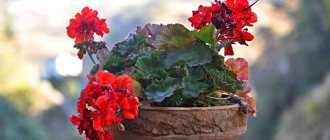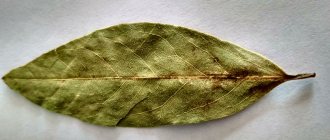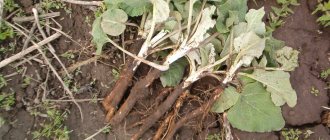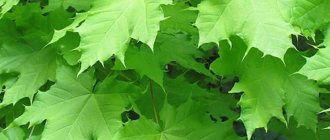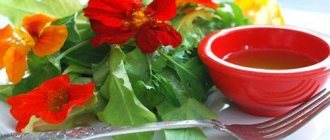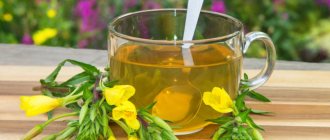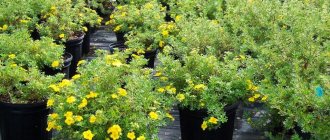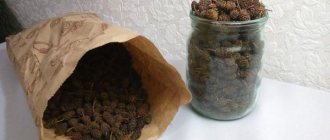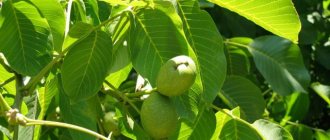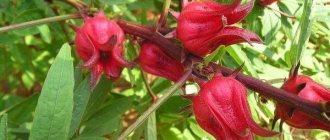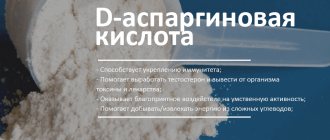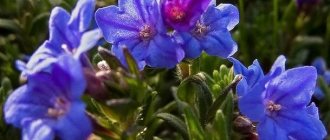blackberry leaves
They contain many useful microelements for humans. They have healing effects, but it is worth considering that there are contraindications, although there are significantly fewer of them than most synthesized drugs.
Biochemical composition
Blackberry leaves contain:
- sugar;
- vitamins (vitamins C, PP, A, E and B vitamins);
- essential oils;
- minerals;
- organic acids;
- tannins and other beneficial substances of plant origin from a number of polyphenols.
The mineral composition is represented by potassium, calcium, phosphorus, sodium, magnesium, manganese, copper, iron, zinc, nickel, chromium, selenium. Among the acids of organic origin is salicylic.
Medicinal properties of leaves
Their healing effects have long been used in traditional medicine, and in some countries they are recognized by doctors.
- Preparations from them have the following healing properties:
- astringent;
- anti-inflammatory;
- expectorant;
- regenerating
- antiseptic;
- antioxidant;
- diuretic;
- diaphoretic;
- antipyretic;
- hemostatic;
- tonic;
- calming.
Did you know? Blackberries were used as medicine more than 2 thousand years ago.
This fact was mentioned in the notes of the ancient Greek physician Dioscorides, who is the author of the most significant collections of drug recipes - “On Medicinal Substances”.
Blackberries: benefits and harm to human health
Many people prefer to saturate their body with vitamins and essential substances by eating fruits, vegetables and berries. Their variety is so great that in some cases it makes it possible to eliminate vitamin deficiency without taking special complexes. Each product has its own properties, which can have both positive and negative effects on the body. For example, blackberries help improve metabolic processes, strengthen immune functions, and increase hemoglobin levels. At the same time, you should not consume the fruits uncontrollably, since the health benefits and harms of blackberries are interconnected.
Benefits, harms and contraindications
| Benefit |
|
| Harm |
|
| Contraindications |
|
The last two contraindications are preventive measures, since all herbs have a complex composition, which depends on many factors (soil composition, ecology of the place of growth), and have not been fully studied.
However, children and women expecting a baby can safely take herbal medicines externally and for rinsing.
Procurement of raw materials
Leaves from blackberry bushes are collected during the flowering period, since during this period the concentration of nutrients in them reaches its maximum. Of course, raw materials collected at another time will also be beneficial, but a plant harvested on time will be most effective. It can be collected throughout the period for fresh use.
Important! You should wear heavy gloves when harvesting blackberry parts, as these bushes can be very thorny.
The raw materials are dried by spreading them in a thin layer on paper or fabric in a room with good ventilation and away from sunlight. After drying, it is laid out in paper bags or linen bags. If you plan to use blackberry leaves as tea, they should be collected before flowering and subjected to the fermentation process. Then you will get a pleasant-tasting aromatic drink.
To do this, the collected foliage is distributed in one layer on a flat surface and rolled with a rolling pin. Then each plate is rolled into a tube, kneaded with fingers, and placed in a jar. The container is tightly closed and left for 2-3 days. Then the raw materials are taken out of it and dried until ready under natural conditions. After drying, it is crushed and stored in a closed glass container in a dry, dark place. Raw materials prepared in this way are stored for no more than 3 years.
Useful properties of blackberries
Blackberries contain a full range of nutrients and medicinal substances, including sucrose, glucose, fructose (up to 5%), citric, tartaric, malic, salicylic and other organic acids, vitamins B, C, E, K, P, PP, provitamin A , minerals (potassium, copper and manganese salts), tannins and aromatic compounds, pectin, fiber and other macro- and microelements.
To brew weak tea, just take 2 teaspoons of dried blackberry leaves or berries and pour a glass of boiling water over them. Cover with a lid and leave for 10 minutes.
For greater therapeutic effect, you can make a decoction. To prepare it, add a liter of boiling water to a handful of dried leaves and simmer over low heat until the volume of liquid is reduced by about half. Drink 2-3 small cups of this decoction throughout the day.
This strong decoction can be used for skin problems and for rinsing the mouth and throat.
The use of blackberry leaves in folk medicine
Traditional medicinal recipes have not lost their relevance even now. They often successfully replace pharmaceutical medications. Blackberry leaves are used internally and externally for medicinal purposes.
Find out what are the features of using cherry, lingonberry, currant and raspberry leaves.
As an antiseptic
Blackberry leaves are an excellent antiseptic, the anti-inflammatory effects of which are manifested when used externally and internally in decoctions.
Rinse for sore throats
You can gargle for infectious diseases using only blackberry leaves or combining them with other antiseptic herbs (calendula, chamomile, sage).
You can make this decoction: pour 1.5 cups of boiling water into 10 g of dried raw materials and keep in a water bath for 30 minutes. Strain the liquid and gargle with it while warm. This herbal decoction will be even more effective if you add essential oils of geranium, juniper, eucalyptus, and lemon.
Inhalations for bronchitis
For diseases of the upper respiratory tract (acute respiratory infections, tonsillitis, bronchitis), inhalation over brewed leaves will be beneficial. To do this, cook them for 20 minutes. in a water bath. Then essential oils (eucalyptus or tea tree) are dripped into the decoction. To take inhalation, bend over the steam and cover with a towel.
For women's health
Blackberry leaves will benefit the female body, but they should be used wisely.
Benefits and harms
The healing properties of blackberry leaves have long been used in folk medicine to improve women's health. These components normalize hormone levels, improve cardiovascular function, and have a good effect on the skin.
- Blackberry leaves have the following beneficial effects on the female body:
- reduce negative effects during menopause (hot flashes, nervousness);
- keep skin youthful;
- strengthen the walls of blood vessels;
- normalize hormonal processes;
- remove harmful substances from the body;
- have indications for diabetes mellitus;
- strengthen the immune system;
- increase the level of hemoglobin in the blood;
- They are a harmless medicine for colds.
An infusion of blackberry leaves will help against nervous disorders and menopause. When preparing it, you need to steam 2 tbsp in 0.5 liters of boiling water. spoons of dry raw materials. Let stand for 5 hours, then strain and place in the refrigerator. Take 1/4 cup 4 times a day until you feel better.
You will be interested to know how honey, watermelon and raspberries are beneficial for a woman’s body.
When gaining excess weight, nutritionists advise drinking tea from the young leaves of this black berry, as it normalizes metabolic processes and helps burn fat deposits. When using herbal preparations, you should monitor your body’s reactions. It is also worth remembering that everything is good if used in moderation.
Consumption of blackberries and infusions of its leaves during pregnancy allows you to saturate a woman’s body with many essential beneficial elements, but since the effect of this remedy on the fetus has not been studied, it is better to use them after childbirth. This herbal remedy will help to recover after the birth of a child, reduce bleeding and improve immunity. Douching from the decoction is done for leucorrhoea and bleeding.
Use in cosmetology
Blackberry leaves have a strengthening effect on blood vessels and have antibacterial properties. This is an excellent product for problematic oily skin prone to inflammation and acne.
Learn how to use bee bread, beeswax and propolis in cosmetology.
You can use the following cosmetic products from blackberry leaves:
- For strengthening hair and against dandruff. You should rinse your hair with the decoction 2-3 times a week. This procedure will strengthen the hair and promote faster hair growth.
- To relieve skin inflammation , as well as to eliminate eczema, lichen, boils, a compress of gruel made from raw materials should be applied to the affected area.
Hair masks are made from blackberry leaves, and the decoction is used to whiten facial skin.
Blackberry leaf - medicinal properties and contraindications
Blackberries - both berries and leaves are useful to humans. Healing substances and vitamins in garden and forest blackberries are contained in all parts of the bush. The leaves are as beneficial for the human body as the berries themselves. This is well known to adherents of traditional medicine, who have long used them to get rid of ailments and prevention. The green part of the bush contains:
- Vitamins – C, group B.
- Water-soluble salts of minerals (iron, manganese, potassium, copper, zinc, many others).
- Flavonoids are powerful antioxidants that relieve inflammation, counteract the aging process of cells, the development of cancer and cardiovascular diseases.
- Organic acids, essential oils.
- Tannins, which determine the bitter taste, have a positive effect on bleeding, inflammation, and digestive problems.
Blackberry leaves beneficial properties
Like berries, blackberry leaves also contain many beneficial substances. They contain:
- Vitamins, including vitamin C;
- Essential oil;
- Mineral salts: iron, phosphorus, zinc, chromium and others;
- Organic acids;
- Tannins;
- Flavonoids;
- Saponins;
- Antioxidants.
Blackberry leaves contain a large amount of flavonoids that have antioxidant properties. It is they who give the leaves powerful anti-inflammatory and immune-strengthening properties.
Scientists have isolated derivatives of kaemferol, quercetin, phenolic acids, and triterpenes.
Antioxidants, as is known, are powerful compounds that neutralize the oxidative effect of free radicals in the body, thereby preventing many diseases, including oncology and heart and vascular diseases.
Speaking of tannins, substances that give the bitter taste and yellowish or brown color to drinks, give the leaves many medicinal properties. Tannins have tanning properties, which is useful for digestive disorders, inflammatory diseases, and bleeding.
The components of the chemical composition of leaves give them properties such as:
- Anti-inflammatory;
- Astringents;
- Antiseptic;
- Regenerating;
- Antibacterial;
- Antioxidant;
- Diuretics;
- Sweatshops;
- Expectorants;
- Hemostatic;
- Wound healing
- and others that will help maintain and restore health.
Beneficial properties of blackberry leaves
When questions arise about the benefits of blackberries, we usually think only about the berries. And in vain, because the leaves of this shrub contain no less beneficial properties.
So, among the beneficial properties of leaves are the following:
- Have an astringent effect on the body;
- Helps cleanse the intestines of worms and parasites;
- Increases the level of sweating;
- Heal minor wounds, cuts and bruises;
- Treat gynecological diseases;
- They cope well with viruses (pneumonia, influenza, bronchitis);
- They improve the functioning of the stomach, treat a whole bunch of diseases (ulcers, dysentery, diarrhea);
- They are a means of treating lichen and purulent abscesses;
- Tone and increase the overall level of immunity;
- Eliminate bleeding in the body;
- Improves the general condition of teeth and gums;
- Lotions from the leaves help against varicose veins.
Interesting fact: this berry was known back in Ancient Greece, where it was considered mystical and medicinal at the same time.
The range of uses of leaves is quite wide. So, with their help you can apply lotions to painful and damaged areas. They are used as a replacement for tea leaves, because blackberry tea is fragrant, tasty and healthy. Also, ground leaves can be included in homemade masks and creams, which have a rejuvenating effect on the skin as a whole.
Benefits of blackberry leaves
The health benefits of blackberry roots are great. Preparations from them are used for the following diseases:
- haemorrhoids;
- angina;
- diarrhea;
- dysentery.
Blackberry leaves have medicinal properties, which have an antibacterial effect. Infusions based on them are used to rinse the mouth, getting rid of various diseases. Blackberry leaves are used to treat diarrhea. The best solution in this case is tea made from them.
The benefits of blackberries for the body are great. Leaf plates strengthen the immune system. This is facilitated by the flavonoids they contain, which also protect the body from viruses and bacteria. Blackberry leaves are often used to get rid of ulcers on the skin. This part of the plant contains substances that soothe the symptoms of hemorrhoids. A decoction of the leaves is used for thrush in the form of washes or baths.
By regularly consuming blackberry leaf extract, you can prevent the development of cardiovascular diseases and strengthen the heart muscle. The leaf blades contain many antioxidants that destroy free radicals. In addition, this part of the plant contains myritillin, which is also called “natural insulin”. The prepared decoction normalizes the amount of sugar in the blood and helps well with non-insulin diabetes.
Benefits of blackberry leaves
It should be noted that blackberries have healing properties not only from the ripe berries, but also from their leaves. It is best to collect them in late spring, when the bush is in bloom. At the same time, choose young and already formed leaves. For drying, use a room with good ventilation and no sunlight. Oven drying at 40 degrees is allowed. The leaves of our thorny bush are rich in tannins and organic acids. They contain flavonoids, vitamin C and essential oils.
Herbalists prepared wonderful tea from blackberry leaves: fresh leaves were placed in a closed enamel container, kept until completely withered and darkened, after which they were air-dried and brewed with boiling water.
Blackberry leaves crushed into pulp can be applied to wounds, abscesses, bruises; they can be used to treat lichen, eczema, trophic ulcers and other skin diseases.
An infusion of leaves is also useful for gum disease, in which case it is used as a rinse.
A decoction of blackberry roots is also healing. It is believed that its use has a good effect as a diuretic for dropsy.
Blackberries go very well in collections with other herbs. Here are some recipes.
30 grams blackberries
30 grams of linden flowers
30 grams peppermint
The tannins in blackberry leaves have an astringent effect, so they are used for intestinal problems and diarrhea. The leaves of a “relative of raspberries” added to tea reduce blood sugar levels and are used in the treatment of diabetes. In addition, blackberry tea normalizes metabolic processes, which is very important for obesity.
It is recommended to drink an infusion of plant leaves in three doses per day. It is prepared like this: 2 teaspoons of dry crushed raw materials are infused for 20 minutes in 1 glass of boiling water and filtered.
For diarrhea, gastritis, as an additional remedy for dysentery, food poisoning, peptic ulcers of the stomach and duodenum, the infusion of leaves is prepared slightly differently: 1 tablespoon of dry crushed raw materials is poured with 1 glass of boiling water, infused for 3 hours in a thermos. Take 1/2 cup 3-4 times a day 20 minutes before meals. For gastrointestinal bleeding and enterocolitis, the infusion should be taken every 2 hours.
Make this collection and brew tea during colds and flu. Drink it hot, adding natural honey.
After tea, wrap yourself up well and go to bed to sweat well.
30 grams blackberries
30 grams of raspberries
Blackberry leaves have a tart taste and are often used in herbal teas and mixtures. But tea brewed only from blackberry leaves is also very good! And not just for the taste. It facilitates the fight against inflammation of the mucous membranes of the mouth and stomach.
We advise you to read: Buckwheat tea: the benefits and harms of ku qiao, beneficial properties and contraindications of Chinese tea, what it tastes like and how to brew it, what Taiwanese kuqiao is made from
Blackberry leaves and berries (in the form of infusion) are used for atherosclerosis and hypertension.
Blackberry leaf - medicinal properties
The rich biochemical composition determines the almost universal medicinal properties of the blackberry leaf. Application ensures general healing of all body systems, because infusions and decoctions have an antiseptic, antibacterial, astringent, regenerating, diuretic and diaphoretic, as well as a tonic and calming effect. Preparations based on it help in the treatment of:
- Colds, sore throats, pharyngitis, laryngitis, bronchitis, pneumonia, oral diseases.
- Diarrhea, dysentery, skin diseases.
- Rheumatism, gout, arthritis.
In folk medicine, blackberry foliage is most effectively used:
- For sore throat, bronchitis, diseases of the oral cavity and gums. Pour 2 s. l. dry leaves 1.5 tbsp. water, heat for half an hour in a water bath, and after cooling, filter. Warm decoction is used for rinsing and inhalation.
- For food intoxication, diarrhea. Pour 1 tbsp into a thermos. boiling water 1 s. l. dried leaf, leave for 1 - 2 hours, filter. Drink 100 ml 3-4 times a day.
- For external use in the treatment of wounds, ulcers, abscesses, bruises. A paste of fresh herbs is applied to the problem area and left for 1 hour, secured with a bandage.
- For joint pain. Dried blackberry leaves are poured with vodka (10 tbsp per 0.5 liter) and left for 7 – 10 days. Used to rub sore joints.
Blackberry leaves contraindications
The only contraindication is individual intolerance.
Those who have high stomach acidity should not abuse tea or other preparations based on blackberry leaf.
Chronic use of the leaves (even for making tea) can cause diarrhea and liver problems.
It is not recommended to use blackberry leaves for pregnant and lactating women, as well as small children under 2 years of age, without consulting a doctor. This ban is more related to the insufficient scientific basis on the effect of leaves on the health of women during this period and young children.
Contraindications
Apart from individual intolerance, there are practically no direct contraindications for using this product. To exclude at least some harm, it should be used with caution in case of increased stomach acidity, serious diseases of the kidneys, stomach, intestines, pregnancy, breastfeeding, and under 2 years of age.
Recipes for use
Below are the most popular recipes using blackberry leaves.
Blackberry leaf tea
To prepare it, you can use these components in dried form. The best composition is 1 part berries and 2 parts foliage. The leaves are crushed and placed with blackberry fruits in a cotton bag. The berries and herbs will dry out in 3-4 days. The mixture is used as a regular brew. Tea made from it will have a wonderful aroma.
You can also use mixtures of blackberry leaves and other healthy plant crops (chamomile, mint, strawberry leaves, raspberries, currants) for this drink.
Tea is prepared in this way: 2 teaspoons of the dry mixture are poured with boiling water and allowed to brew for 16–20 minutes. Then filter through a strainer and that’s it - the aromatic drink is ready. For taste add honey and a slice of lemon. This drink is an excellent prevention of colds.
Decoction
A decoction of blackberry leaves is very popular in folk medicine. It has a diaphoretic effect, removing excess fluid from the body. Drinking helps with bleeding in the stomach, dyspeptic disorders, skin problems, and colds.
Also read about the features of using a decoction of onion peels and dill.
A decoction of dry leaves is made in a water bath. It's not difficult to prepare. Need 2 tbsp. l. dry raw materials, pour 1.5 cups of water and simmer in a water bath for 30 minutes. You can speed up the cooking process by steaming the indicated proportions with boiling water in a thermos, and then let it brew for 60 minutes.
Blackberry jam with leaves
You can make jam from blackberries and leaves. Greens from the bush will give this sweetness a pleasant bitterness.
Ingredients:
- berries - 2 kg;
- water - 1 l;
- leaves - 200 g;
- sugar - 3 kg.
Cooking method:
- Wash the berries and herbs under the tap, place on a sieve, and then let the water drain.
- Boil the leaves in water for 20 minutes and then pull them out.
- Mix 0.5 liters of sugar with 0.5 liters of the resulting broth and let it simmer until syrup is obtained.
- Throw the washed berries into the resulting sweet liquid and simmer over low heat for 10 minutes.
- Then cool to room temperature.
- Then put it back on the fire and cook for another 20 minutes. For taste, at the end of cooking you can throw in 1 lemon, which is previously crushed in a blender.
- The resulting sweet mass is poured into well-washed jars and sealed with lids.
It is recommended to store jam for no more than 2 years. Blackberry leaves are a simple raw material used for oral diseases, diabetes, diarrhea and skin problems. You can make aromatic tea from them and use them to care for problem skin with increased sebum secretion. You should consult your doctor before using this natural remedy.
How best to consume
Plant raw materials retain their active properties in fresh and dried form. The main thing is to prepare it correctly.
Depending on the form of the disease and the affected area, a certain type of homemade composition with blackberry leaves is suitable:
- fresh raw materials (juice, decoction, infusion, green mass for compresses);
- dried (infusion, tea, decoction).
Reference! A decoction or infusion of leaves is “softer” than the berries. If the gastrointestinal tract is weak, the patient should not eat juicy, tasty blackberries in large quantities: herbal remedies from the leaves for oral administration will bring more benefits.
If you really want to, you are allowed to eat 4–5 berries a couple of times a week, but no more: violating the rule increases acidity and provokes the formation of ulcers on the delicate mucous membrane.
Infusion for rinsing the mouth and throat (sore throat, stomatitis):
- Steam 3 tbsp in a thermos or jar. l. dried leaves. Half a liter of boiling water is enough.
- After an hour, the herbal remedy is ready.
- The filtered liquid is used for rinsing 3-4 times throughout the day.
Infusion for diabetes:
- For a glass of boiling water - a tablespoon of fresh or dried leaves.
- After half an hour, the infusion should be strained.
- The healing infusion is taken orally 3 times a day, a third of an hour before meals.
- The course of treatment is 2 weeks. Fresh product is prepared daily.
Decoction of leaves for external and internal use:
- Dried or fresh raw materials are poured with boiling water, cooked over low heat for 3 minutes, and infused under a closed lid for an hour.
- At 2 tbsp. l. Leaves, just take 500 ml of hot water.
- The strained decoction is useful for colds, endocrine diseases, and weakness.
- For oral administration, the frequency is no more than three times per day. External treatment (compresses for varicose veins, trophic ulcers) is carried out once a day.
Juice from fresh leaves:
- The raw materials are thoroughly washed, crushed in a blender or turned through a meat grinder.
- The resulting pulp must be squeezed out and the healing juice collected in a clean non-metallic container.
- Wounds, microcracks, ulcers, smeared with juice, heal faster. The reason for the active bactericidal effect is the presence of flavonoids, tannins, and zinc in the plant.
- For oral administration, the dosage and frequency depend on the type of disease. Only an experienced herbalist will tell you how many drops or spoons of healing juice are allowed to be consumed for a certain pathology.
Beneficial properties of blackberry leaf and flower tea for diarrhea:
- The active astringent effect is a reason to abandon “chemistry” and replace tablets with a healing infusion.
- For a glass of boiling water you will need a tablespoon (without a slide) of dried leaves. Blackberry flowers are added to enhance the effect.
- Anti-diarrhea tea is ready in 45 minutes. The filtered liquid should be drunk in the morning, afternoon and evening, a third of a glass.
Green mass for the treatment of ulcers, lichen, eczema:
- Finely chop fresh blackberry leaves or grind in a blender. Can be passed through a meat grinder.
- Apply the paste with medicinal properties to the affected areas for half an hour.
- The procedure is carried out 2 times a day, the course is two weeks.
Greens reduce pain in rheumatism, gout, and arthritis. Daily treatment of problem areas will have a positive effect.
Do not forget about other methods of treating joint pathologies; you cannot rely only on herbal medicines.
